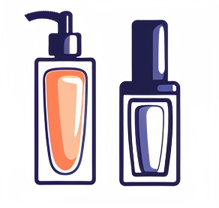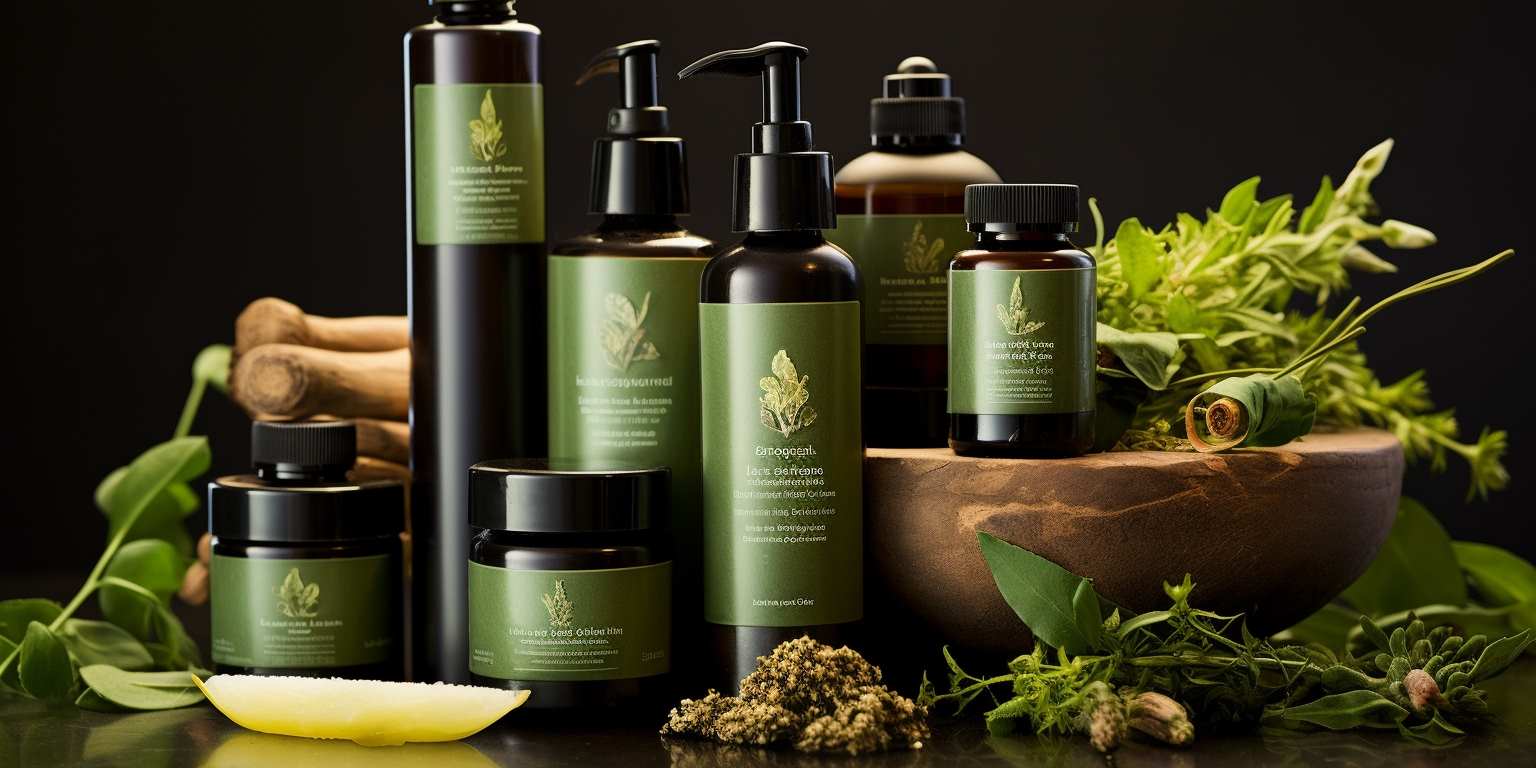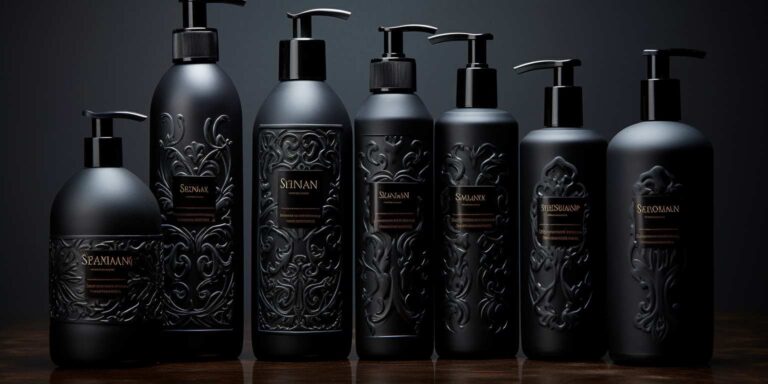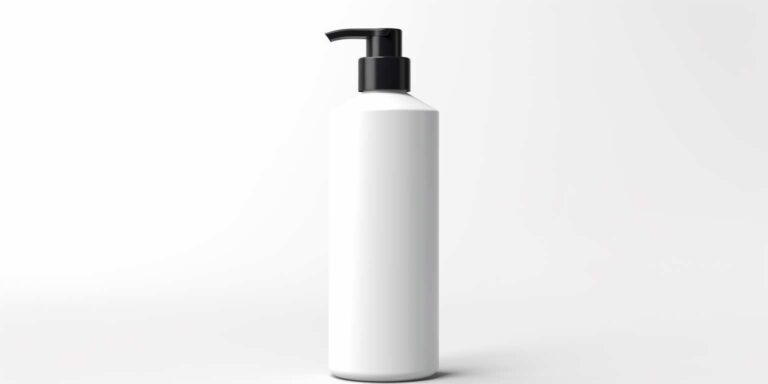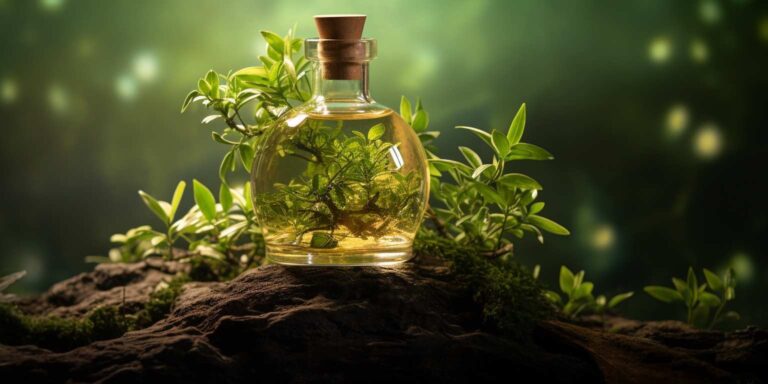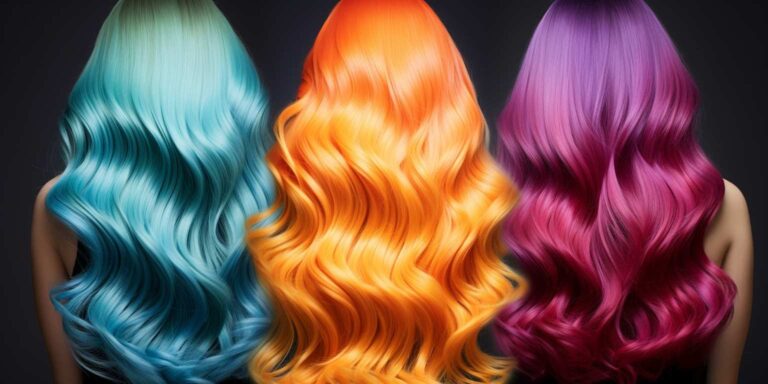The ultimate guide to herbal shampoo and conditioner
One of the key advantages of herbal shampoo lies in its gentleness on the hair and scalp. Unlike commercial shampoos that may contain harsh chemicals, herbal shampoos often utilize plant-based extracts known for their mild and soothing properties. Ingredients like aloe vera, chamomile, and lavender are commonly found in these formulations, providing a nourishing and calming effect.
Choosing the right herbal shampoo involves understanding your specific hair needs. Different herbs address various concerns, such as rosemary for promoting hair growth, tea tree for combating dandruff, and nettle for addressing oily scalp issues. Look for products that align with your hair goals to maximize the benefits.
When it comes to herbal conditioners, the focus is on delivering natural moisture and nutrients to the hair. Common herbal conditioner ingredients include coconut oil, argan oil, and shea butter. These components not only hydrate the hair but also contribute to softness and manageability.
Understanding the labels on herbal hair care products is crucial. Look for terms such as “paraben-free,” “sulfate-free,” and “organic” to ensure you are choosing a product free from harmful chemicals. Additionally, cruelty-free and vegan labels indicate a commitment to ethical and sustainable practices.
DIY enthusiasts can explore creating their herbal shampoos and conditioners at home. This allows for customization based on individual preferences and hair needs. Ingredients like rose petals, hibiscus, and lemon can be combined to concoct personalized herbal blends.
It’s essential to note that while herbal hair care products offer numerous benefits, consistency is key. Results may take time to manifest, especially if transitioning from conventional to herbal products. Patience is rewarded with healthier, more vibrant hair in the long run.
Finding the best natural hair wash for your type
Navigating the world of natural hair wash products can be overwhelming with the myriad of options available. Each hair type has unique needs, and finding the best natural hair wash for your specific type requires careful consideration.
Firstly, it’s crucial to understand your hair type. Is it straight, wavy, curly, or coily? Knowing your hair’s texture is the foundation for selecting the right hair wash. Straight hair tends to get oily faster, while curly and coily hair may need more moisture.
Ingredients play a pivotal role in determining the effectiveness of a natural hair wash. Look for sulfate-free options, as sulfates can strip the hair of its natural oils, leading to dryness. Opt for organic and natural ingredients like aloe vera, coconut oil, and argan oil. These ingredients not only cleanse but also nourish the hair.
Consider specialized formulations that cater to specific concerns. If you have a dry scalp, a moisturizing natural hair wash with ingredients like shea butter can provide relief. For those with dandruff issues, tea tree oil-infused washes can be beneficial.
While the shampoo is crucial, the conditioner is equally important in a hair care routine. Ensure that your natural hair wash is part of a comprehensive hair care system. The conditioner should complement the shampoo and address your hair’s unique needs.
Reviews and testimonials from people with similar hair types can be valuable. They provide insights into the real-world performance of the product. Look for reviews that mention how the natural hair wash addresses issues such as frizz, breakage, and overall hair health.
Another aspect to consider is the environmental impact of the product. Choose brands that prioritize sustainability and eco-friendly packaging. This not only benefits the planet but also reflects a commitment to overall well-being.
To make the decision process easier, here’s a quick guide based on common hair types:
| Hair Type | Recommended Natural Hair Wash |
|---|---|
| Straight | Gentle Cleansing Shampoo with aloe vera |
| Wavy | Moisturizing Shampoo with coconut oil |
| Curly | Hydrating Shampoo with argan oil |
| Coily | Nourishing Shampoo with shea butter |
Why organic scalp treatment shampoo is a game changer
Imagine a revolutionary hair care product that not only cleanses your scalp but also nourishes it with organic ingredients carefully selected to promote scalp health. That’s the essence of organic scalp treatment shampoo, a game changer in the world of hair care.
What sets organic scalp treatment shampoo apart from conventional shampoos is its all-natural formulation. Unlike traditional shampoos that often contain harsh chemicals like sulfates and parabens, organic scalp treatment shampoo relies on the power of nature’s bounty. Ingredients like organic oils such as coconut oil and argan oil, essential oils like lavender and rosemary, and herbal extracts such as aloe vera and green tea work synergistically to cleanse, soothe, and revitalize the scalp.
One of the primary benefits of organic scalp treatment shampoo is its mild and gentle nature. Traditional shampoos, especially those containing harsh chemicals, can strip the scalp of its natural oils, leading to dryness, irritation, and dandruff. In contrast, organic scalp treatment shampoo respects the scalp’s natural balance, leaving it clean and refreshed without causing damage or dryness.
Furthermore, organic scalp treatment shampoo is a boon for those with sensitive or problematic scalps. The soothing properties of organic ingredients help calm irritation and reduce inflammation, making it suitable for individuals prone to scalp conditions such as eczema or psoriasis. By opting for an organic solution, individuals can care for their scalp without exacerbating existing issues.
Another reason why organic scalp treatment shampoo is a game changer is its sustainability. Organic farming practices prioritize environmental conservation and reduce the carbon footprint associated with agricultural production. By choosing organic products, consumers contribute to a healthier planet while indulging in luxurious self-care.
How to choose the right herbal shampoo for you
Choosing the right herbal shampoo can be a daunting task with the myriad of options available in the market today. With everyone’s unique hair type, concerns, and preferences, finding the perfect match requires a bit of exploration and understanding.
Understanding Your Hair Type: Before diving into the world of herbal shampoos, it’s crucial to understand your hair type. Is it oily, dry, curly, straight, thick, or thin? Knowing this information will help narrow down your options and find a shampoo tailored to your specific needs.
Key Ingredients: When it comes to herbal shampoos, the ingredients list is paramount. Look for shampoos that contain natural and organic ingredients such as herbs, essential oils, and plant extracts. Avoid shampoos with harsh chemicals like sulfates, parabens, and artificial fragrances, as they can strip your hair of its natural oils and cause irritation.
Match Ingredients to Your Needs: Different herbal ingredients offer various benefits for your hair. For example, if you have dry scalp or hair, look for shampoos containing hydrating ingredients like coconut oil, aloe vera, or argan oil. If you struggle with dandruff, seek out shampoos with anti-inflammatory and antifungal properties such as tea tree oil or neem.
Consider Your Scalp: Your scalp health plays a significant role in the overall condition of your hair. If you have a sensitive scalp, opt for gentle formulas that soothe and calm irritation. Look for shampoos labeled for sensitive scalp or containing ingredients like chamomile or calendula.
Check for Certifications: To ensure the authenticity and quality of the herbal shampoo, check for certifications such as USDA Organic, ECOCERT, or COSMOS Organic. These certifications indicate that the product meets certain standards and has undergone rigorous testing.
Read Reviews: Before making a purchase, take the time to read reviews from other users. Their experiences can provide valuable insight into how the shampoo performs, its scent, texture, and overall efficacy.
Trial and Error: Finding the perfect herbal shampoo may require some trial and error. Don’t be discouraged if the first shampoo you try doesn’t work miracles. Experiment with different brands and formulas until you find the one that leaves your hair feeling clean, nourished, and healthy.
Benefits of switching to herbal conditioner
In today’s world, people are becoming more conscious of the products they use, especially when it comes to personal care items. Herbal conditioners have gained immense popularity due to their numerous benefits and natural ingredients. Let’s delve into why switching to herbal conditioner can be a game-changer for your hair care routine.
1. Chemical-Free Formulation: One of the primary reasons people opt for herbal conditioners is their chemical-free composition. Unlike conventional conditioners that are laden with harsh chemicals like sulfates and parabens, herbal conditioners harness the power of nature’s ingredients. This means you can nourish your hair without exposing it to harmful toxins.
2. Nourishes and Strengthens: Herbal conditioners are formulated with natural extracts such as aloe vera, coconut oil, shea butter, and various herbs that are rich in vitamins, minerals, and antioxidants. These ingredients penetrate deep into the hair shaft, nourishing and strengthening the hair from within. Regular use can lead to healthier, more resilient hair that is less prone to breakage and split ends.
| Ingredients commonly found in herbal conditioners: | Benefits |
|---|---|
| Aloe Vera | Moisturizes and soothes the scalp, promotes hair growth |
| Coconut Oil | Deeply conditions, adds shine, and prevents protein loss |
| Shea Butter | Hydrates, reduces frizz, and protects against environmental damage |
| Herbal Extracts (e.g., rosemary, chamomile) | Stimulates circulation, soothes the scalp, and adds natural highlights |
3. Gentle on the Scalp: Many commercial conditioners contain irritating ingredients that can cause scalp irritation, itchiness, and dryness. Herbal conditioners, on the other hand, are gentle and soothing, making them suitable for those with sensitive scalps or conditions like eczema or psoriasis.
4. Environmentally Friendly: By choosing herbal conditioners, you’re not only taking care of your hair but also the environment. These products often come in biodegradable packaging and are cruelty-free, meaning they’re not tested on animals. Making the switch contributes to sustainable and ethical consumerism.
5. Customizable Options: Herbal conditioners offer versatility in terms of formulations catering to different hair types and concerns. Whether you have dry, oily, curly, or damaged hair, there’s a herbal conditioner tailored to meet your specific needs. Additionally, you can even find recipes to make your own herbal conditioner at home, allowing you to control the ingredients and customize it to suit your preferences.
Herbal ingredients that boost hair health
When it comes to nurturing your hair, nature often holds the key to unlocking its full potential. Harnessing the power of herbal ingredients can provide a natural boost to your hair health, promoting growth, strength, and vitality.
One of the most renowned herbal ingredients for promoting hair health is rosemary. This fragrant herb is rich in antioxidants that help to combat free radicals, which can damage hair follicles and lead to hair loss. Rosemary also stimulates blood circulation to the scalp, promoting hair growth and preventing premature graying.
Peppermint is another herb that can invigorate the scalp and promote hair growth. Its menthol content provides a cooling sensation that helps to soothe irritation and inflammation, while also improving blood flow to the hair follicles. This can result in thicker, healthier hair over time.
Lavender oil is celebrated for its calming aroma, but it also offers numerous benefits for hair health. This essential oil has antimicrobial properties that can help to keep the scalp clean and free of dandruff-causing bacteria. Additionally, lavender oil has been shown to promote hair growth and reduce hair loss in some studies.
For those struggling with dry, brittle hair, aloe vera can be a game-changer. This succulent plant is prized for its moisturizing properties, which can help to hydrate and condition the hair. Aloe vera also contains enzymes that promote healthy hair growth and soothe an irritated scalp.
Hibiscus is not only a beautiful flower but also a potent herbal remedy for hair health. Rich in vitamins and amino acids, hibiscus nourishes the hair follicles, promoting growth and strengthening the hair shaft. It can also help to combat hair loss and prevent premature graying.
| Herbal Ingredient | Main Benefits |
|---|---|
| Rosemary | Stimulates blood circulation, promotes hair growth, prevents premature graying |
| Peppermint | Invigorates scalp, improves blood flow, promotes thicker hair |
| Lavender oil | Antimicrobial properties, promotes hair growth, reduces hair loss |
| Aloe vera | Moisturizes, conditions, promotes healthy hair growth |
| Hibiscus | Nourishes follicles, strengthens hair shaft, prevents hair loss |
Diy herbal hair care recipes to try at home
In the realm of hair care, turning to nature’s bounty can yield remarkable results. Herbal hair care recipes are not only affordable and environmentally friendly but also provide numerous benefits for your hair health. Let’s explore some DIY herbal hair care recipes that you can easily concoct in the comfort of your own home.
1. Nourishing Herbal Hair Oil: Create a luxurious blend of herbs and oils to nourish your hair from root to tip. Combine fenugreek seeds, hibiscus flowers, amla powder, and coconut oil in a jar. Let the mixture infuse for a week, then strain out the herbs. Massage the oil into your scalp and leave it on for a few hours or overnight before washing.
2. Strengthening Herbal Hair Rinse: Brew a potent herbal infusion to strengthen your strands and add shine. Boil nettle leaves, rosemary, and horsetail in water for 20 minutes, then strain. After shampooing, pour the herbal rinse over your hair as a final rinse. The nutrients from the herbs will penetrate your hair shaft, leaving it stronger and more resilient.
3. Soothing Herbal Scalp Mask: Treat your scalp to a soothing mask to alleviate dryness and irritation. Mix aloe vera gel, tea tree oil, and lavender essential oil in a bowl. Apply the mixture to your scalp and let it sit for 30 minutes before rinsing. The antibacterial properties of tea tree oil combined with the calming effects of lavender will leave your scalp feeling refreshed and rejuvenated.
| Recipe | Ingredients |
|---|---|
| Nourishing Herbal Hair Oil | Fenugreek seeds, Hibiscus flowers, Amla powder, Coconut oil |
| Strengthening Herbal Hair Rinse | Nettle leaves, Rosemary, Horsetail |
| Soothing Herbal Scalp Mask | Aloe vera gel, Tea tree oil, Lavender essential oil |
4. Herbal Hair Growth Serum: Stimulate hair growth with a potent serum made from castor oil, peppermint essential oil, and rosemary essential oil. Mix the ingredients in a dropper bottle and apply a few drops to your scalp daily. The circulation-boosting properties of peppermint and rosemary will encourage healthy hair growth, while castor oil provides moisture and nutrients to the hair follicles.
